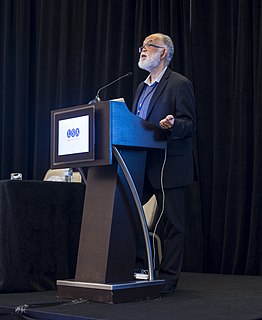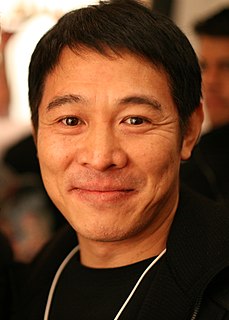A Quote by George Orwell
Modern English, especially written English, is full of bad habits which spread by imitation and which can be avoided if one is willing to take the necessary trouble. If one gets rid of these habits one can think more clearly, and to think clearly is a necessary first step toward political regeneration: so that the fight against bad English is not frivolous and is not the exclusive concern of professional [or scholarly] writers.
Quote Topics
Related Quotes
On the one hand, there is no question that English - frequently bad English - has become the universal language of scholarship. It is clearly a tremendous handicap for people outside of the United States, Britain, and Australia and a few other countries because few of them are native speakers, but we demand that they present and publish in English.
The revival of Hebrew, as a spoken language, is a fascinating story, which I'm afraid I cannot squeeze into a few sentences. But, let me give you a clue. Think about Elizabethan English, where the entire English language behaved pretty much like molten lava, like a volcano in mid-eruption. Modern Hebrew has some things in common with Elizabethan English. It is being reshaped and it's expanding very rapidly in various directions. This is not to say that every one of us Israeli writers is a William Shakespeare, but there is a certain similarity to Elizabethan English.
I don't think it is always necessary to take up the anti-colonial -- or is it post-colonial? -- cudgels against English. What seems to me to be happening is that those people who were once colonized by the language are now rapidly remaking it, domesticating it, becoming more and more relaxed about the way they use it -- assisted by the English language's enormous flexibility and size, they are carving out large territories for themselves within its frontiers.
Some stories I write in Swedish, some in English. Short stories I've almost exclusively written in English lately, mostly because there's such a small market for them in Sweden and it doesn't really pay either. So, the translation goes both ways. What also factors in is that I have a different voice in English, which means that a straight translation wouldn't be the same as if I'd written it in English originally.
My father was English. He date-raped my mother so she's hated English men ever since. You know my boyfriend's English, and I'm, uh, I'm half-English, which she's never been real happy about. If she finds out I'm dating someone English, she'll ah, think I' turning my back on her and becoming a foreigner.' Cathy, that's the stupidest reason I've ever heard.
Translated literature can be fascinating. There's something so intriguing about reading the text second hand - a piece of prose that has already been through an extra filter, another consciousness, in the guise of the translator. Some of my favorite writers who have written in English were doing so without English being their first language, so there's a sense of distance or of distortion there, too. Conrad. Nabokov. These writers were employing English in interesting ways.





































